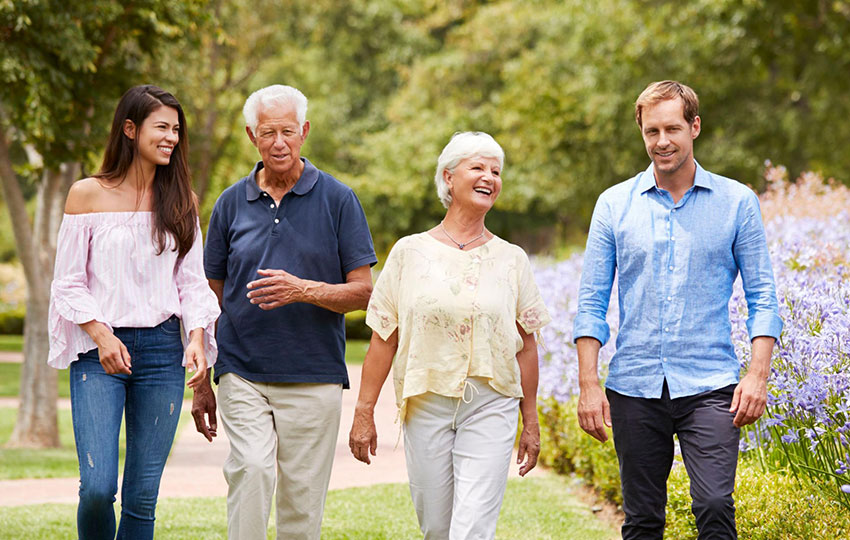Table of Contents
Active Aging Embracing Active Aging entails more than just maintaining physical fitness; it embodies a holistic approach to life that enhances well-being, fosters independence, and promotes a fulfilling lifestyle. This comprehensive exploration delves into the benefits, strategies, and importance of Active Aging in achieving vitality and satisfaction as we grow older.

Understanding Active Aging
Defining Active Aging
Active Aging encompasses the process of optimizing opportunities for health, participation, and security in order to enhance quality of life as people age. It emphasizes staying engaged physically, socially, and mentally to maintain overall well-being.
Shifting Perspectives on Aging
Active Aging challenges traditional notions of aging as a period of decline by promoting a proactive approach to health and vitality. It encourages individuals to remain active participants in their communities and pursue meaningful activities throughout life.
Benefits of Active Aging
Physical Well-Being
Engaging in regular physical activity improves cardiovascular health, strength, flexibility, and balance. It reduces the risk of chronic conditions such as heart disease, diabetes, and osteoporosis, enhancing overall physical resilience and longevity.
Cognitive Health
Active Aging supports cognitive function and mental acuity. Physical exercise stimulates brain activity, promotes neuroplasticity, and reduces the risk of cognitive decline and dementia, allowing for sharper cognitive abilities as individuals age.
Emotional Resilience
Participating in social and physical activities fosters emotional well-being and resilience. It reduces stress, anxiety, and depression, promoting a positive outlook on life and enhancing overall psychological health in older adults.
Strategies for Active Aging
Physical Activity Guidelines
Following recommended guidelines for physical activity, such as aerobic exercises, strength training, and flexibility exercises, supports optimal health benefits. Tailoring exercises to individual abilities and interests ensures sustainability and enjoyment.
Lifelong Learning and Mental Stimulation
Engaging in lifelong learning, hobbies, and cognitive activities such as puzzles, reading, or learning new skills, promotes mental stimulation and cognitive vitality. It challenges the brain and maintains neural connections, supporting cognitive health.
Social Engagement and Community Involvement
Maintaining social connections and participating in community activities enhances emotional well-being and combats social isolation. Volunteering, joining clubs or organizations, and staying connected with friends and family promote a sense of purpose and belonging.
Promoting Active Aging in Daily Life
Healthy Eating Habits
A balanced diet rich in nutrients, antioxidants, and fiber supports overall health and vitality. Adopting dietary habits that prioritize fruits, vegetables, lean proteins, and whole grains contributes to sustained energy levels and optimal physical functioning.
Sleep and Rest
Quality sleep is essential for Active Aging. Establishing a regular sleep schedule, practicing good sleep hygiene, and prioritizing restful sleep support physical recovery, cognitive function, and emotional well-being.
Stress Management Techniques
Incorporating stress management techniques such as meditation, yoga, deep breathing, or mindfulness practices reduces stress levels and promotes relaxation. Managing stress effectively enhances resilience and supports overall health as individuals age.
Technology and Active Aging
Wearable Fitness Devices
Wearable technology, such as fitness trackers and smartwatches, monitors physical activity levels, heart rate, and sleep patterns. It provides feedback and motivation for achieving fitness goals, promoting adherence to Active Aging routines.
Telehealth and Remote Wellness
Telehealth services offer convenient access to healthcare professionals for preventive care, consultations, and management of chronic conditions. Remote wellness programs provide virtual exercise classes, health coaching, and social support, enhancing accessibility to Active Aging resources.
Creating Age-Friendly Environments
Accessible Infrastructure
Designing communities and public spaces with age-friendly features, such as sidewalks, ramps, seating areas, and accessible transportation options, promotes Active Aging and encourages outdoor mobility and social participation.
Housing Options
Housing options that accommodate older adults’ needs, such as single-floor living, grab bars, and accessible bathrooms, support independent living and safety. Age-in-place designs allow individuals to remain in familiar environments while aging comfortably.
Economic and Policy Considerations
Employment Opportunities
Promoting employment opportunities, flexible work arrangements, and lifelong learning initiatives for older adults encourages continued participation in the workforce. It supports financial security, social engagement, and personal fulfillment.
Policy Advocacy
Advocating for policies that support Active , such as healthcare reform, social security enhancements, and age-friendly community initiatives, ensures equitable access to resources and services for older adults across diverse populations.
The Future of Active Aging
Innovations in Aging Research
Advancements in aging research, including regenerative medicine, personalized healthcare, and longevity studies, offer promising avenues for enhancing Aging outcomes. These innovations aim to extend healthspan and promote vitality in aging populations.
Cultural Shifts and Perceptions
Shifting societal attitudes toward aging and promoting positive representations of older adults as active contributors to society fosters a culture of Active Aging. It encourages intergenerational solidarity and mutual respect across different age groups.
Active Aging
Embracing Active Aging empowers individuals to lead fulfilling lives, maintain independence, and enjoy a sense of purpose as they age. By adopting proactive health behaviors, engaging in meaningful activities, and creating supportive environments, older adults can cultivate vitality and well-being throughout their life course. Celebrate the journey of Active and seize the opportunities for growth, resilience, and joy in every stage of life.





More Stories
How Inflammaging Impacts Your Health as You Age
The Art of Aging: Strategies for Thriving Through the Aging Process
How Geroscience Is Redefining the Golden Years